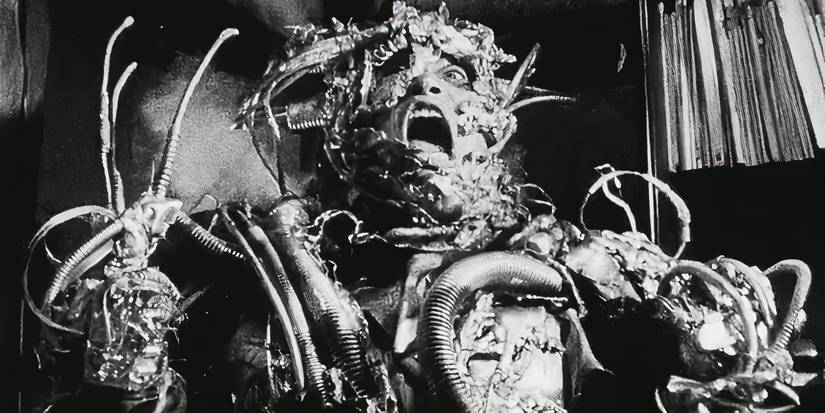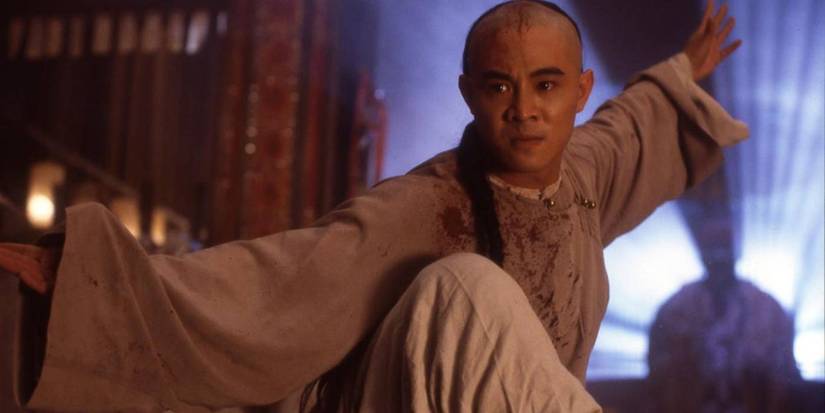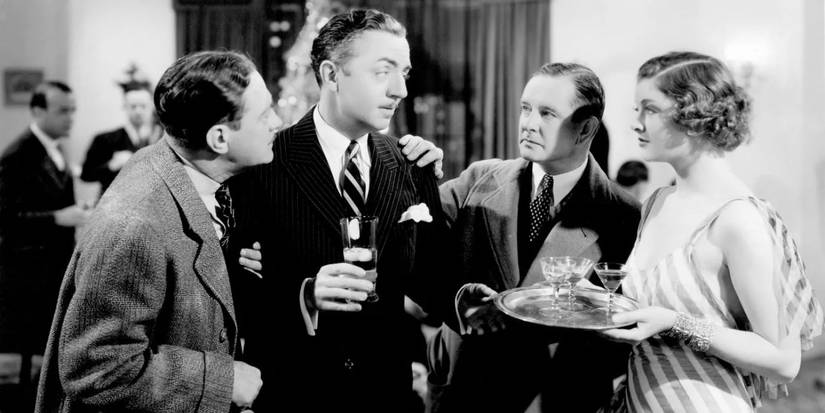Film franchises are all the fad as we speak, however there are many wonderful movie collection that do not get the popularity they deserve. A movie franchise can provide filmmakers an opportunity to inform a long-form story that stretches past one installment, they usually have been a part of film historical past because the starting.
Sequels are sometimes derided as a result of they present a scarcity of creativity, however good movie franchises justify every installment by persevering with the story in a compelling means. Some franchises last for decades, such because the James Bond collection, whereas others solely final just a few years. Timing is not at all times necessary, as legacy sequels can observe up on films which can be many years previous.
What really drives a franchise is cash, and the chance to proceed field workplace success is normally what evokes Hollywood to churn out sequels. This has produced some distinctive film franchises that do not observe the traditional method, but it surely has additionally created a bevy of collection that don’t have anything new to supply.
Generally, a movie collection may be very well-liked on the time, however slowly loses steam and turns into forgotten. This does not essentially converse to the standard of these movies, but it surely says extra about how traits can have an effect on franchises as they leap from film to film. Even when they’ve been forgotten, there are some franchises which can be value revisiting.
10
The Tetsuo Trilogy (1989-2009)
Director/author/producer Shinya Tsukamoto’s Tetsuo: The Iron Man was a disturbing piece of Japanese cult cinema, and it was not essentially a primary candidate for turning into a franchise. Drawing inspiration from a number of sources, the cyberpunk physique horror story makes use of surrealism to inform the story of a person slowly reworking right into a steel monster.
Tetsuo II: The Physique Hammer adopted in 1992, and solidified the collection’ theme of revenge. The ultimate movie, Tetsuo: The Bullet Man was not as well-received, however accomplished a thematic trilogy with equally disturbing imagery. Not like different franchises which have their second and are forgotten, the Tetsuo trilogy are cult classics solely sought out by cinephiles.
9
The Gator McKlusky Duology (1973-1976)
Burt Reynolds’ most iconic roles usually solid him as the final word working-class hero, and his turns as Gator McKlusky helped solidify that place. Beginning with 1973’s White Lightning, Reynolds starred because the ex-con hero twice, however the McKlusky collection is a kind of traditional franchises that’s usually missed as a result of there was no third movie.
Crown jewels of the ’70s Rednexploitation growth, White Lighting and Gator had been each hits, and delivered lots of humor and motion. Regardless of being mild enjoyable, the 2 movies advanced the character of Gator, exhibiting him develop as a substitute of resetting him on the finish of the primary film. They are not masterpieces, however they function Burt Reynolds at his best possible.
8
The Mr. Tibbs Trilogy (1967-1971)
Although Within the Warmth of the Evening is without doubt one of the best movies of the late Sixties, its sequels are nearly universally forgotten. Sidney Poitier gave a career-defining efficiency as detective Virgil Tibbs, and his pairing with Rod Steiger’s backwards native police chief was a stroke of genius. The movie skewered racism with none subterfuge, and it daringly challenged conventions.
They Name Me Mr. Tibbs! caught up with Poitier’s heroic cop, but it surely was extra a traditional detective story than groundbreaking cinema. Equally, The Group put Tibbs again on the case, but it surely did not have any tooth. The sequels suffered from having to observe Within the Warmth of the Evening, and would have been significantly better in the event that they weren’t overshadowed.
7
The Lone Wolf And Cub Sequence (1972-1993)
The Lone Wolf and Cub collection was probably the most necessary manga in Japanese historical past, and it solely made sense for them to be tailored into films. The primary 4 movies within the collection had been launched in 1972 alone, with the remainder stretching throughout a number of years and ultimately many years.
They borrow the narrative of the manga, with a rogue warrior defending an harmless baby in feudal Japan, and do the manga justice. Although usually missed in favor of different classic samurai films, Lone Wolf and Cub is shockingly constant. They’ve a lyrical high quality that may generally be hypnotic, however are punctuated with over-the-top graphic violence.
6
The Tremors Sequence (1990-2020)
With an hermetic script and stellar performances, Tremors was a shockingly-strong monster movie that had clear franchise potential. Sadly, the sequels instantly jumped to video, and just one film in the Tremors franchise has ever been given a large theatrical launch. However, the seven-movie collection has lots of highlights.
The sequels broaden upon the cleverness of the unique, dreaming up new eventualities for the monsters to terrorize unsuspecting victims. Kevin Bacon did not return for the sequels, so Michael Gross turned the de-facto hero after a scene-stealing function within the unique. Removed from good, the Tremors franchise is traditional monster film enjoyable.
5
The As soon as Upon A Time In China Sequence (1991-1997)
The wuxia style of martial arts cinema explores China’s previous, and none are as well-known as As soon as Upon a Time in China. Principally starring Jet Li within the lead function, the movies concern people hero Wong Fei-hung within the nineteenth century. The head of Hong Kong’s cinematic golden age, the collection expanded by means of 5 sequels in nearly as a few years.
Vincent Zhao performs Wong Fei-hung within the fourth and fifth movies within the collection.
Li is at his best possible, and the choreography is a number of the strongest within the fashionable period of martial arts films. As a result of they had been made so shut collectively, all six films have a continuity that’s normally missing in a long-running franchise, they usually really feel like one epic storyline stretched throughout a collection of movies.
4
The Pusher Trilogy (1996-2005)
Director Nicolas Winding Refn launched his profession with 1996’s Pusher, however he wasn’t achieved after just one gritty installment. The unflinching crime trilogy is not on an epic scale, and as a substitute exhibits low-level criminals as their lives spiral uncontrolled. Missing the polish of American cinema, the Danish trilogy is nearly unbearably actual in its depiction of avenue crime.
As a result of the movies are worldwide, the Pusher collection is not as well-known stateside amongst informal moviegoers. Nonetheless, it’s best identified for jump-starting the profession of Mads Mikkelsen, who has discovered nice success in Hollywood and past. Regardless of a decade hole between films one and two, Pusher is clearly Refn’s imaginative and prescient from begin to end.
3
The Skinny Man Sequence (1934-1947)
Tailored from Dashiell Hammett’s eponymous novel, The Skinny Man was one of many earliest franchises from Hollywood’s Golden Age. Although it rapidly exhausted its supply materials after just one film, the husband-and-wife detective duo of Nick and Nora Charles clearly had lots of future potential. The movies eschewed typical hard-boiled detective tropes, which made for field workplace gold.
Throughout six installments for greater than a decade, Nick and Nora returned to crack instances and resolve crimes. William Powell and Myrna Loy co-starred in all six films, and The Skinny Man was field workplace gold all all through the darkish days of WWII. Trendy audiences have largely forgotten, however The Skinny Man franchise nearly by no means dipped in high quality.
2
The Three Colors Trilogy (1993-1994)
Whereas most movie franchises are particularly designed to become profitable, the Three Colors collection is extra about making a creative level. Director Kryzysztof Kieślowski delivers three largely disparate movies that every discover one phrase within the French motto: liberty, equality, and fraternity. The trilogy may be very loosely linked, with just a few cameos to hyperlink them.
Critically applauded, the collection is extra about subverting style expectations than delivering any type of satisfying story developments. There may be additionally a way of symmetry between the three films, with order and design taking precedent over the strictures of movie storytelling. Three Colors is not usually lauded alongside other great trilogies, largely as a result of it tries to not be one in any respect.
1
The Earlier than Trilogy (1995-2013)
The passage of time performs an necessary half within the Earlier than trilogy, each for the characters and the way the story itself is informed. Director Richard Linklater delivered Earlier than Dawn in 1995 as a slice-of-life romantic drama that follows two characters as they spend a night collectively in Vienna. Not a lot occurs, however the stellar dialogue waxes philosophically in regards to the nature of happiness.
As mentioned within the film, the characters return (round) 10 years later for Earlier than Sundown, and once more 20 years later in Earlier than Midnight. Every time they reunite within the sequels, they take stock of their lives, inspecting their happiness. With an equal period of time passing in actual life, the largely forgotten trilogy permits the viewers to do the identical.




















